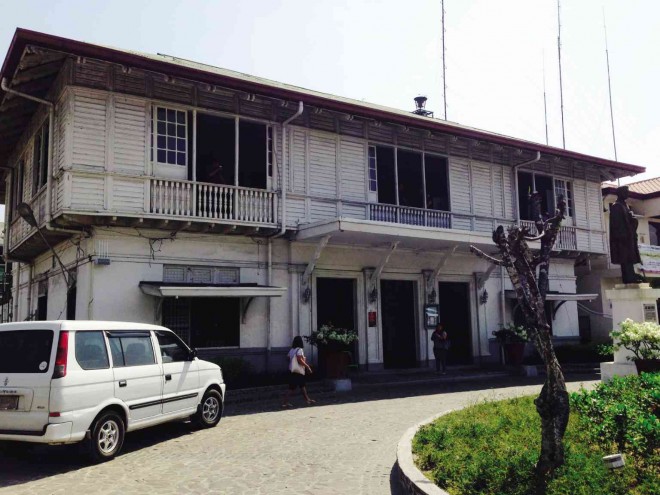
VERY few cities and towns in the Philippines have museums, and they scratch for funds to keep going like the Museo ning Angeles in Angeles City. TONETTE T. OREJAS/INQUIRER CENTRAL LUZON
ANGELES CITY—A private group has sounded the need to raise P14 million to restore a 93-year-old former town hall in Angeles City housing the Museo ning Angeles.
The old “municipio,” built in 1922, was last repaired in 1999 when Kuliat Foundation Inc. (KFI) reused it as a museum. This was a year after the city government moved its offices in 1998 to Barangay (village) Pulung Maragul.
The National Museum of the Philippines declared the old building an important cultural property (ICP) on June 12, 2012.
The building houses the Culinaria, the first culinary museum in the country, and art galleries. On permanent exhibits are the histories of Angeles City and the former Clark Air Base, as well as dioramas of Philippine clothing by the “Grand Dame of Philippine Fashion,” Patis Pamintuan-Tesoro, whose roots are in Angeles. Tesoro is known for her creative and classic designs using indigenous materials like abaca and piña (extract fiber from pineapple leaves).
The museum is part of the proposed heritage zone from Barangay Sto. Rosario up to Villa Angela. At the Carmelite monastery is the retablo (niches of saints before the major altar) painted by National Artist Carlos “Botong” Francisco.
Behind the museum is the Pamintuan mansion where the First Philippine Republic held the second anniversary of the declaration of independence from Spain in 1900.
Across the building is Holy Rosary Parish, the only baroque-styled church in Pampanga province. Beside the church is Holy Angel University (HAU), which houses the museum of the Center for Kapampangan Studies.
Joy Cruz, executive director of the Museo ning Angeles, said the museum needed to restore its ceiling, roofing, windows, restrooms, and plumbing and electrical systems.
According to KFI president Rosalie Naguiat, the present sources of funds—entrance fees, donations, monthly contribution of donors, grants and income from a recently put up café—are not enough.
The city government renovated the plaza and provided free Wi-Fi service at a cost of P8.6 million. Organizers of the annual street dancing and concert “Tigtigan at Terakan king Dalan” gave P100,000 to the KFI last year.
First to respond to the restoration project are fashion designer Philip Dizon and choreographer-musician Andy Alviz. They are mounting the fashion show “Pidayit” on April 25 at HAU, committing to give the proceeds to the foundation.
Naguiat expressed the hope that “Pidayit” is the beginning of many community efforts to keep the museum going for the next generations.